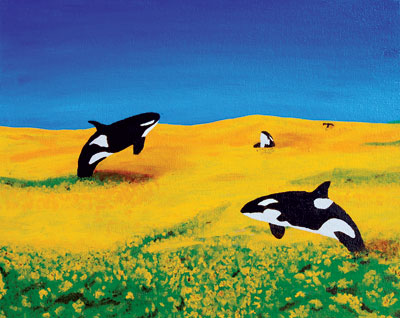All Nonfiction
- Bullying
- Books
- Academic
- Author Interviews
- Celebrity interviews
- College Articles
- College Essays
- Educator of the Year
- Heroes
- Interviews
- Memoir
- Personal Experience
- Sports
- Travel & Culture
All Opinions
- Bullying
- Current Events / Politics
- Discrimination
- Drugs / Alcohol / Smoking
- Entertainment / Celebrities
- Environment
- Love / Relationships
- Movies / Music / TV
- Pop Culture / Trends
- School / College
- Social Issues / Civics
- Spirituality / Religion
- Sports / Hobbies
All Hot Topics
- Bullying
- Community Service
- Environment
- Health
- Letters to the Editor
- Pride & Prejudice
- What Matters
- Back
Summer Guide
- Program Links
- Program Reviews
- Back
College Guide
- College Links
- College Reviews
- College Essays
- College Articles
- Back
Free the Orcas
Free the Orcas
There is one thing that I hate more than anything else, and it may be a little strange. I hate orcas in captivity. I started researching orcas more in depth last year, and I found out some surprising information about marine life enclosed in captivity. I’ve never had any specific interest in orcas or “killer whales” but some things I began to learn shocked me. One specific orca was named Lolita. She lives in the Miami Seaquarium and has been in captivity for almost her whole life after being captured and separated from her mom. I fell I love with her and learned her story, then soon made a short documentary explaining her miserable life. Orcas can live past 80 years old in the wild; however when put in captivity their life expectancy actually goes down. Typically, animals put into captivity are expected to have a longer life. Orcas are also not the most gentle of animals hence their nickname “killer whale”. They are generally kind, but they are wild animals and can’t always be controlled. The largest orca in captivity is at the Seaworld in Orlando. This orca, named Tilikum, has killed three trainers. However, Seaworld still puts orcas and people in risk.
Orcas and dolphins were not meant to be held captive. My views on captivity differ from animal to animal. I fully support zoos, because they often work towards helping endangered animals and releasing them back into the wild. At marine parks, the dolphins/orcas they get were most likely captured at some point in their life. There is rarely if ever an opportunity to “save” in orca from the wild; the idea just doesn’t exist. All orcas were captured at some point in their life, and then traded from marine park to marine park. They never get released back to the wild, and they are supposed to perform in shows several times a day for food. Marine parks also attempt to have breeding programs so they can have their own orcas and ship them off to other parks, yet many of these young orcas end up dying at birth. The majority of them are even inbreeded, causing several genetic defects that are the cause of many deaths. It just seems so wrong to put a whale in a tiny fish bowl for the rest of their life. The worst part is that these parks try to educate the public on what the animals lives would be like in the wild, and they seem to just ignore that they’re lives are now sad in comparison. There is no way to justify confining such a large, magnificent creature in such a heartbreaking exhibit.

Similar Articles
JOIN THE DISCUSSION
This article has 0 comments.
